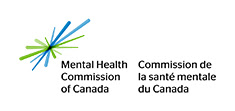What’s in a name? That which we call a rose, by any other name would smell as sweet. William Shakespeare
As if to refute Shakespeare’s famous line, we all like to define things that are new to us. Scientists will define new stars, species or diseases. Social workers and teachers will define new approaches to learning and social improvement. Business people will define their brand, or a new trend in consumer behavior. Academics spend their entire careers reading about previously defined concepts and trying to invent new ideas and label them.
It comes as no surprise that many people who first hear the term social enterprise want a definition. This is why you’ll see a “definition” of social enterprise in the margin to the right of this post. For most, to understand the meaning of a term is the first step to embracing the idea. The words are familiar but are not fully understood as a pair. Is social enterprise a chatty workplace? Is it a new media term? Is it a collection of similar businesses? Amalgamating the known definitions of the two terms leads to many interpretations.
Social Enterprise, in essence, basically refers to a commercial activity with a primary goal of creating some sort of social benefit. However, this is not the only definition. There are many nuances and variations, including legal structures, ownership, profitability goals, success measurements, hiring practices, asset locks, target beneficiaries and a host of subjective qualifications depending on the personal perspective of the entrepreneur.
It is significant to note that even people who work as social entrepreneurs or as supports to social enterprise can’t agree on a definition. This is confusing for the newly initiated and leads to a great many people dismissing social enterprise as a fad, a new label on an old idea, or even an insidious effort to undermine the market economy, or the charitable sector. Without a definition, social enterprise runs the risk of being marginalized–possibly even shunned–by the establishment.
However, it is my belief that the fluidity of the definition, the nuances, and the many interpretations is actually what makes social enterprise so powerful as a tool for social change. In our modern world the silos of social structures—non profits, coops, government, business, clubs—have led us to myopic perspectives on how to provide value to society. In order to really start to address the social problems that are a result of the current structures, we need to look for more malleable, more dynamic, more intangible, and less defined tools. Social innovation requires new thinking to old problems and new hybrid approaches to put that new thinking into action.
It is no longer sufficient to simply “partner” with another sector actor to seek effective change. Partnership and collaboration are strong tools to bring different perspectives to a problem, but they are just the beginning. Social enterprise, in all of its many forms and definitions, is a structure that allows for many approaches and many perspectives to be used simultaneously. Social entrepreneurs can glean from the best practices of a diverse group: non profits, private businesses, public sector institutions, co-ops, voluntary associations, charities, community associations, etc.
As if to punctuate the value of a vague definition of social enterprise, the Harvard Business School’s Social Enterprise Initiative’s mission, “applies innovative business practices and managerial disciplines to drive sustained, high-impact social change…[while we] engage with the nonprofit, for-profit, and public sectors to generate and share resources, tools, and knowledge.”
The challenge of no clear definition is that our laws, our financial services and our social support networks remain somewhat confused by social enterprise. Interpretation of the term’s meaning leaves us wondering: does a social enterprise run on grants or through investment? Does it require volunteers or paid staff? Are they taxed or not? Must they incorporate or be informal? Are they out to make financial gains or generate social value? The answer is that social enterprise can do all of these things…sometimes all at the same time.
Confusing? At first yes, perhaps. However, if we embrace the concept of social enterprise rather than a strict definition, then we may indeed see innovative solutions that will improve our society for generations to come.


